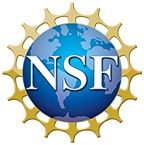
Artificial intelligence for all
The overall goal of Artificial Intelligence for All is the development of Artificial Intelligence (AI) courses and an interdisciplinary certificate that will expose all college students to AI, while building capacity for the development of a four-year degree in applied AI. This project aims to serve the national interest by increasing community colleges’ capacity to attract and train students in AI.
The four-year grant will be implemented at MDC in collaboration with University of Florida’s Department of Engineering Education, Texas A&M University- Commerce's Department of Higher Education and Learning Technologies and the non-profit organization AI4ALL. The project will also count with the support from subject matter experts from companies like IBM, AWS, and Microsoft.
Outcomes
As part of this National Science Foundation (NSF) grant, the School of Engineering and Technology (EnTec) is working on the following areas:
- Provide industry-based professional development for MDC faculty to develop and pilot AI courses, and to integrate AI into existing courses.
- Adapt previously developed and tested AI courses from University of Florida for use in a credit-granting AI program at MDC.
- Create interdisciplinary courses that make an AI certificate available and relevant to all MDC students.
- Establish multiple student entry points into AI for traditional students and existing professionals. The project seeks to meet students where they “are”: geographically, economically, and academically.
- Provide support mechanisms that engage and encourage underrepresented minorities students to study AI.
Leadership Team
- Antonio Delgado, (P.I.), VP of Innovation and Technology Partnerships, MDC
- Joseph A. Weathers (Co-P.I.), Instructor, School of Engineering and Technology, MDC
- Sarah Rodriguez (Co-P.I.), Associate Professor, Department of Higher Education and Learning Technologies, TAMUC
- Diego Alvardo (Co-P.I.), Lecturer, Department of Engineering Education, UF
Sponsor
Full support for this work was provided by the National Science Foundation Advanced Technological Education (ATE) program under Award No. 2115153. Any opinions, findings, and conclusions or recommendations expressed in this material are those of the author(s) and do not necessarily reflect the views of the National Science Foundation.


